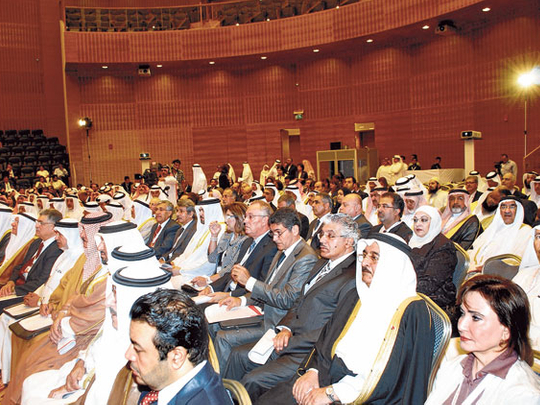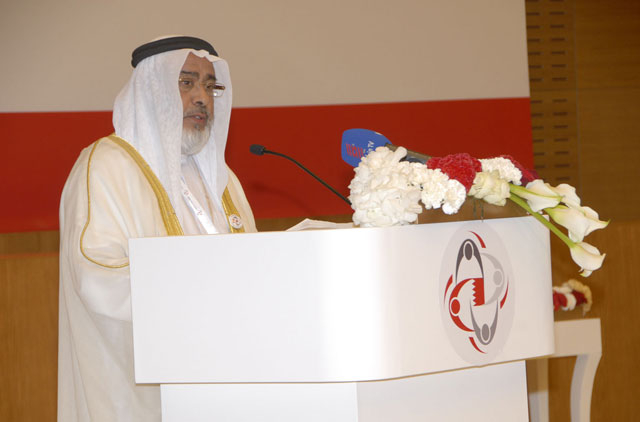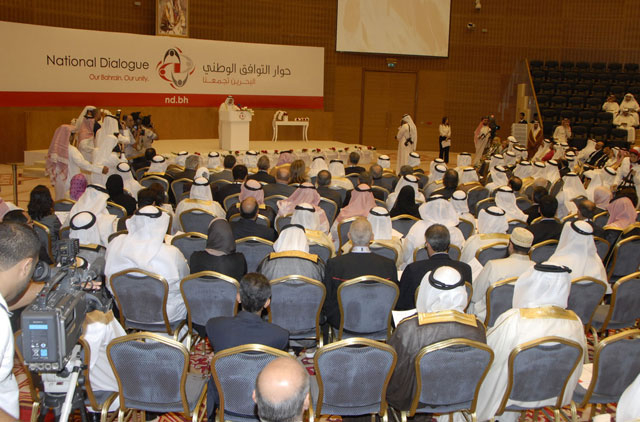
Manama: Bahrain's national dialogue, a forum that is bringing together more than 300 people from 18 political parties, civil society, trade unions, business people, media, parliament, ministers, religious leaders and social activists, was opened on Saturday amid pledges that it will be fair and transparent.
"The national dialogue is a responsibility that we will assume with full transparency and objectivity throughout all its phases," said Khalifa Al Dhahrani, the lower chamber speaker tasked with chairing the dialogue.
The audience at the august hall at the Eisa Cultural Centre in Manama had a sense of the pledged neutrality when no seats were assigned to specific personalities, a fact that Mahmoud Al Yousuf, Bahrain's best-known blogger and a participant in the talks, seemed to relish.
"A prompt start amongst still to be filled seats. Sending message that tardiness won't derail talks?," he tweeted. "Unassigned seating by design. Ministers visibly confused have to sit away front row. Good start."
Al Dhahrani then detailed the process to the participants, an amalgam of men, women, politicians, activists, academics, business people, unionists and journalists, saying that at the conclusion of the dialogue sessions, moderators will submit the results to the Chairman of the national dialogue, including the points of agreement or disagreement.
"My task will be to submit what has been agreed upon to HM the King who will refer them to the constitutional institutions to take the necessary action, each according to its competence," he said.
Claims that Al Wefaq, the largest opposition society, had flouted the regulations by announcing its participation only a short time before the start of the talks were dismissed by Eisa Abdul Rahman, the dialogue spokesman, who said that all 18 political parties under the umbrella of the justice ministry had been invited to the dialogue and that there was no time limit for entering the talks.
"We heard that some people were confused on whether Al Wefaq had the right to be part of the national dialogue after deciding a few hours before its start to join," Eisa said. "The fact is we had a deadline for the visions of those taking part since we needed to categorise them according to the four themes to be taken up. There never was a deadline for participation and if an invitation went out, it means that the invitee can join at any time," he said as he addressed a press conference following the formal opening of the dialogue.
Following four weeks of speculations on whether Al Wefaq would join the national talks, Ali Salman, the secretary general, on Friday afternoon said that the society would have an active participation.
However, it said that it would pull out if the talks did not move forward to achieve tangible results.
The decision immediately waded into controversy among the society's supporters with many welcoming it as "a sensible step" to overcome the crisis, but with several others saying that Al Wefaq had "betrayed" its followers.
Dialogue organisers ruled out favouritism towards any of the participants, saying there would be no preferential treatment.
"All participants are equal, and even the government, like the political societies and the Bahrain Chamber for Commerce and Industry has only five representatives," they said.
The talks will focus on political, economic, social and rights issues and will start on Tuesday evening.
According to dialogue officials, the participants cannot be expected to leave their work and hold talks, so the solution is to have them meet three times a week around 5 pm for talks that could last until 9pm.














